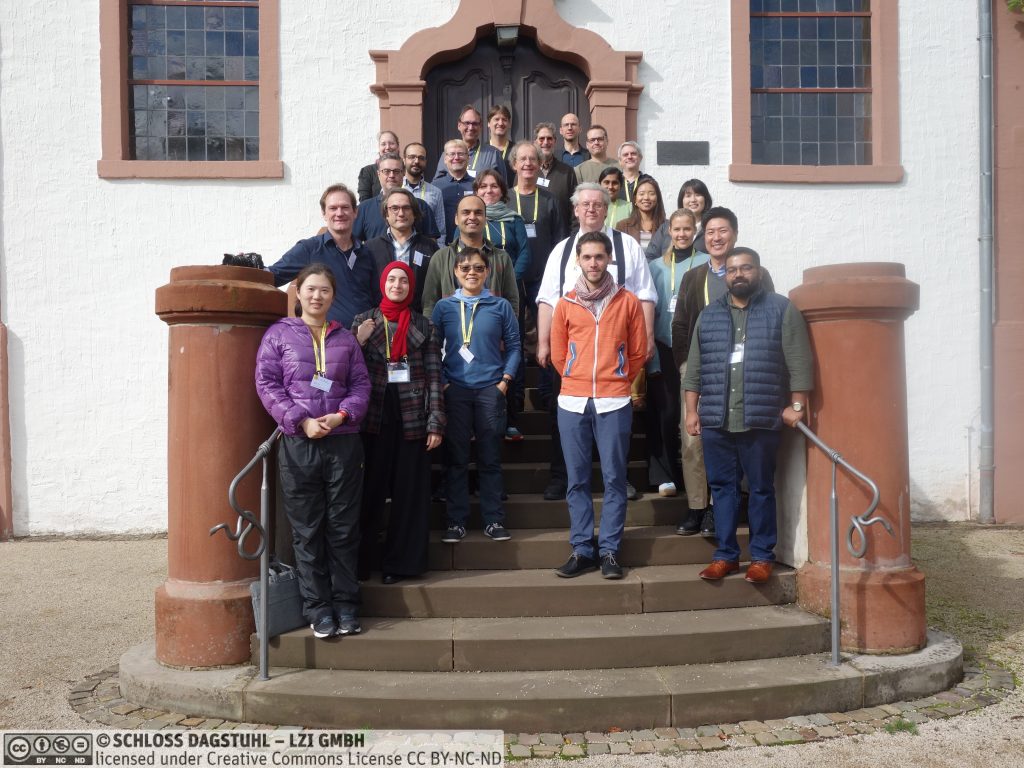Toward a Net Zero Internet
Toward a Net Zero Internet

HKUST(GZ) faculty member Prof. Dirk Kutscher, a member of the IoT Thrust and the director of the Guangzhou Municipal key laboratory of Future Networked Systems, has co-organized an international seminar at the prestigious “Schloss Dagstuhl – Leibniz Center for Informatics” in Germany from September 29th to October 2nd 2024 that has brought together computer scientists and engineers from 11 countries on 3 continents to reduce the carbon footprint of the future.
As climate change triggered by CO2 emissions dramatically impacts our environment and our everyday life, the Internet has proved a fertile ground for solutions, such as enabling teleworking or teleconferencing to reduce travel emissions. It is also a significant contributor to greenhouse gas emissions, e.g. through its own significant power consumption. It is thus very important to make networks themselves "greener" and devise less carbon-intensive solutions while continuing to meet increasing network traffic demands and service requirements.
Prof. Kutscher and his co-organizing team of leading Internet researchers from the University of Oxford, the University of Oslo, and the University of California, Santa Cruz, invited computer scientists and engineers from world-leading universities and international companies, such as Ericsson, NEC, Netflix, Red Hat, and Telefonica to identify and prioritize the most impactful networking improvements to reduce carbon emission, define action items for a carbon-aware networking research agenda, and foster/facilitate research collaboration in order to reduce carbon emissions and to positively impact climate change.
In addition to pure networking issues, the seminar also analyzed the impact of larger systems that are built with Internet technologies, such as AI, multimedia streaming, and mobile communication networks. For example, the seminar discussed energy proportionality in networked systems, to allow systems to adapt their energy consumption to actual changes in utilization, so that savings can be achieved in idle times. Such a behavior would require better adaptiveness of applications and network protocols to cost information (such as carbon impact). Moreover, networked systems can interact with the power grid in different ways, for example adapting energy consumption to current availability and cost of renewable energy, which can be helpful for joint planning of grid and network/networked-systems/cloud, achieving maximum efficiency/savings.
The seminar attendees are working with international research and standardization organizations such as the Internet Engineering Task Force (IETF) and ETSI, and it is expected that the seminar will make contributions to future research and standardization agendas in such organizations to bring the Internet to Net Zero emissions.
Seminar organizers:
- Dirk Kutscher (HKUST - Guangzhou, CN)
- Noa Zilberman (University of Oxford, GB)
- Michael Welzl (University of Oslo, NO)
- Cedric Westphal (University of California, Santa Cruz, US)
- Alexander Clemm (Los Gatos, US)
More information is available at: https://dirk-kutscher.info/events/dagstuhl-greening-networking/





